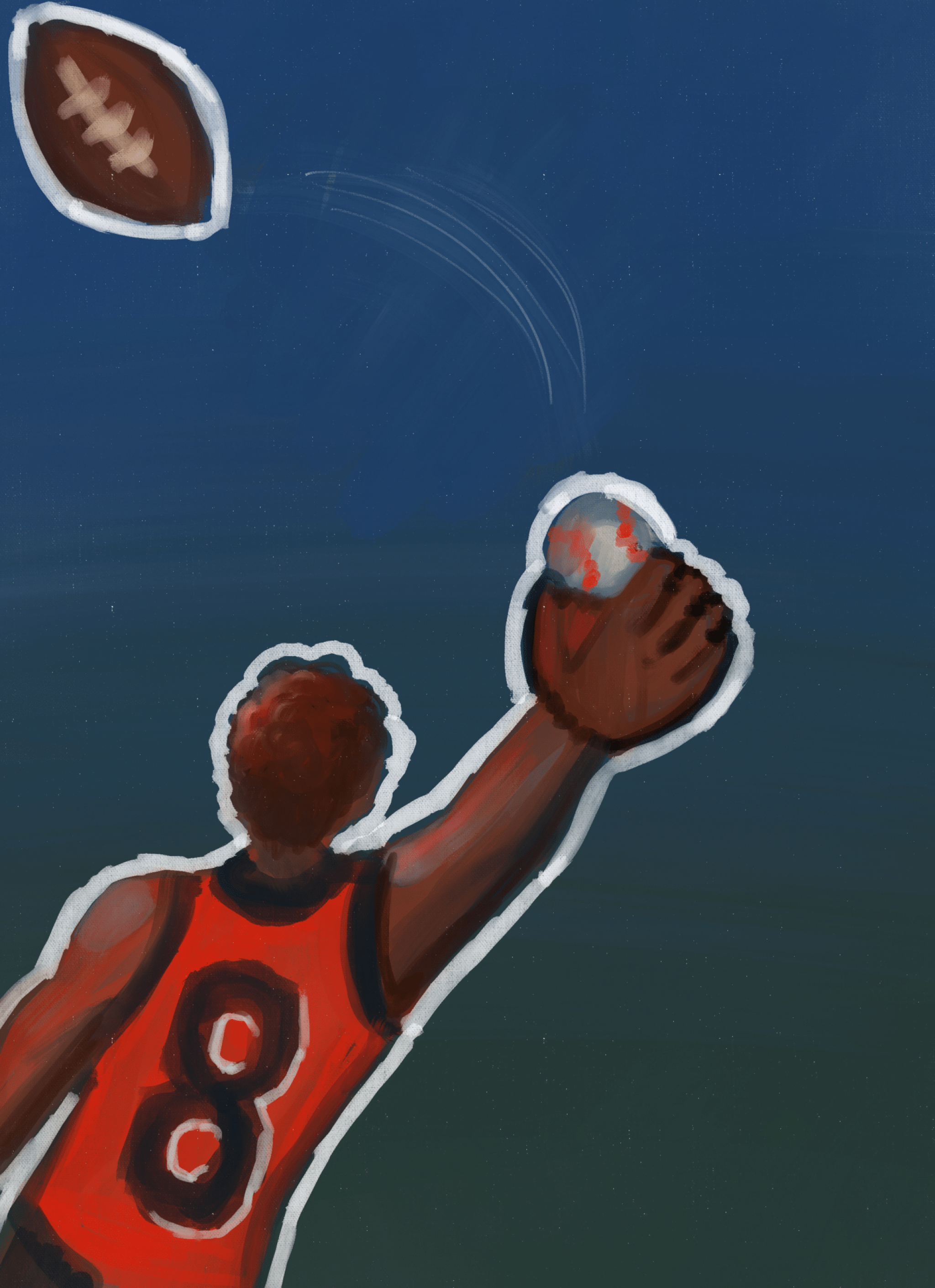Driven by their passion for athletics, several students at Berkeley High School tackle the demanding yet rewarding challenge of playing two different sports for BHS. Unlike most students who decide to stick to playing just one sport, BHS’ dual sport athletes are committed to managing the demands of two sports and bringing their several talents to the school’s athletic programs.
For some students, another sport can provide a way to challenge themselves and open up different opportunities. Sinjin Amianda-Cook, BHS sophomore, is a junior varsity football wide receiver and part of the BHS baseball program. He decided to pick up football in his freshman year, motivated by the idea of pushing himself past the demands of baseball and implementing a bit of variety into his schedule.
“If you’re just doing one thing all year, every day, it can kind of wear on you and make you feel a little tired. But if you’re switching things up, it adds some kind of variety into your life which I think is really good,” Amianda-Cook said.
Beyond the court and the field, playing multiple sports can help provide students with several different skills that can translate to other activities and skillsets in life. Having to balance the overlapping schedules of soccer and running for the cross country team has helped BHS sophomore Felix Mathew grow his decision-making ability.
When presented with a scheduling conflict between his sports, Mathew weighs the importance of each event and then makes his decision. “There are some days I have to really decide which one I want to do more and which is more important to me in the moment … sometimes I’m really bad with decisions, but this two sport thing has taught me doing what you want is really important,” Mathew said.
However, managing two sports isn’t only about making tough scheduling decisions. Between the demanding schedule of practice, games, and homework, dual sport athletes find the workload of commitments difficult to manage at times.
For Amianda-Cook and Mathew, the overlapping of seasons leads to them sometimes attending two practices in the same day. Yet, it’s their love for the game and the friendships that the sports foster that help athletes balance out their schedules and make it all feel worth it.
While each sport has its own unique skillsets required, many athletes that play two different sports find that playing one sport can complement the other one and support abilities in both of the sports. Football, for example, is able to translate certain athletic skills to baseball which can help elevate an athlete’s talents.
“Baseball seems a little more rigid and a lot more fundamental. And football is a lot more about reacting which I think has really helped me just react in the moment and become more of an athlete,” Amianda-Cook said. Although both sports have vastly different rules and styles, gaining athleticism can always benefit an athlete, regardless of what playing surface they’re on.
Similarly, for Mathew, running the long and rigorous courses of cross country corresponds to the stamina and reactive skills required when he plays soccer, “They both have that same full on, always on your toes feel. I feel as though when I’m playing soccer I’m a lot better with my reaction time from running,” Mathew said.





